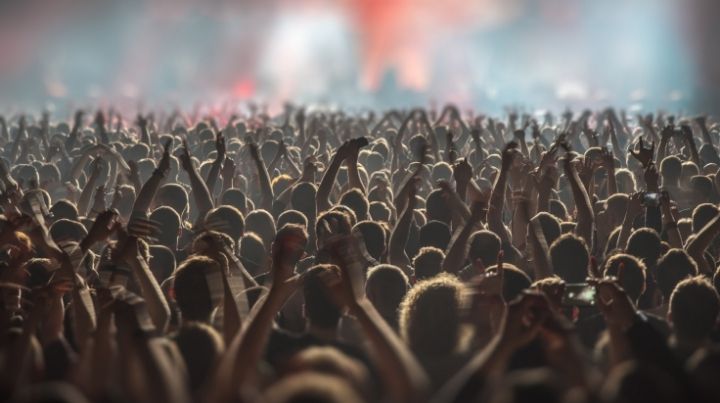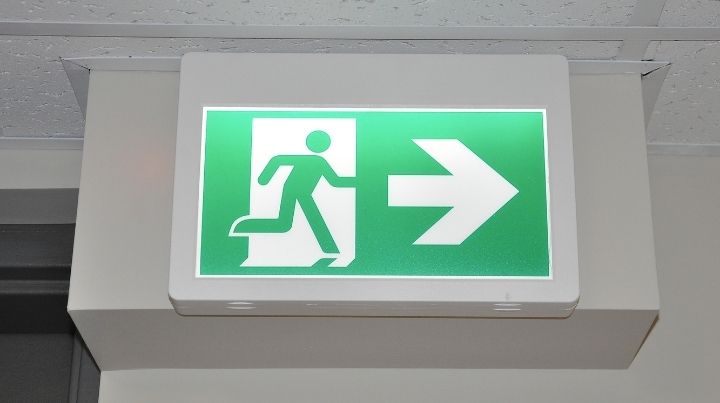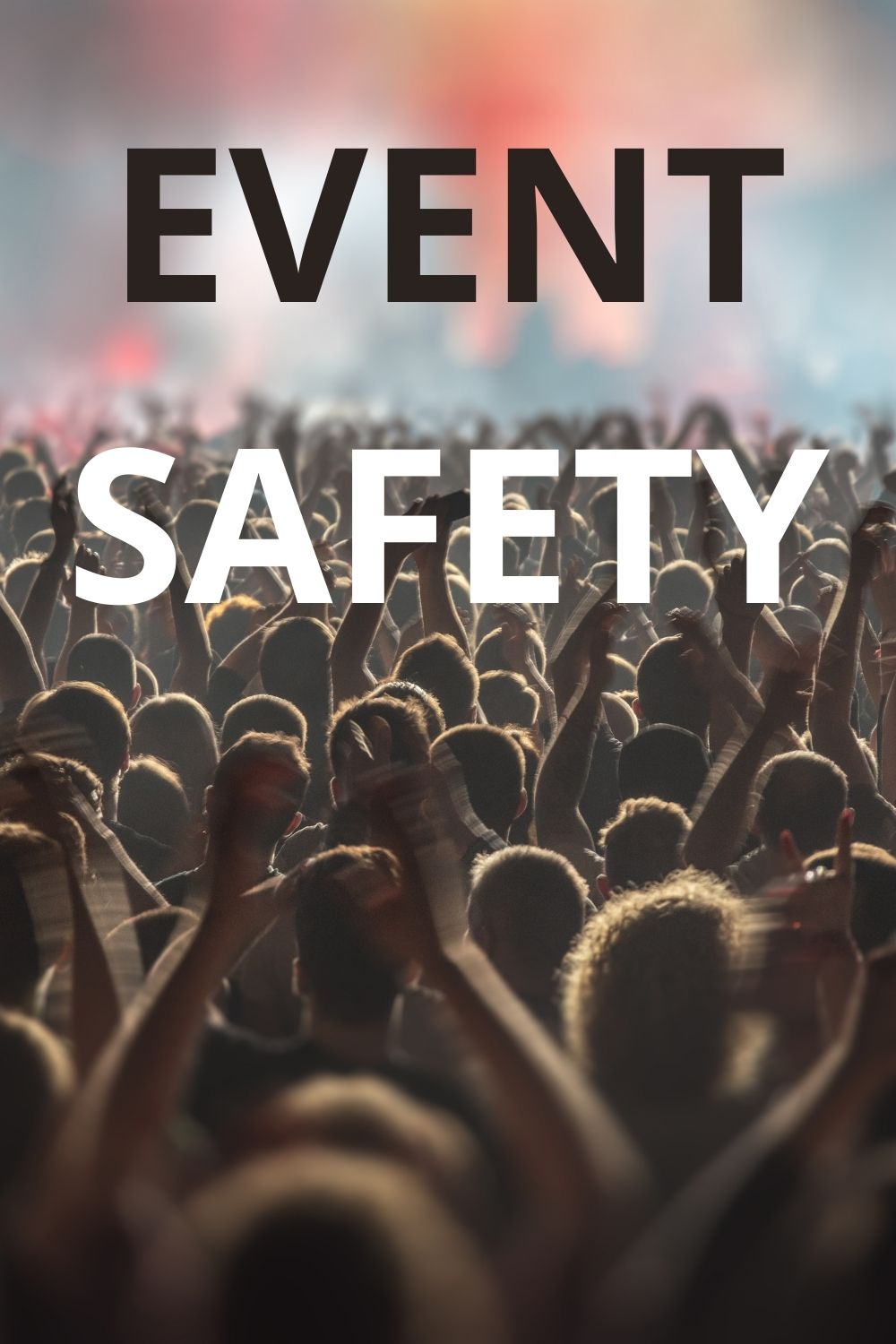Event Safety: How to Be Safe at Concerts and Sporting Events

Some preppers seem to think that going to crowded events like concerts, theaters, and sporting events is totally antithetical to living a prepared lifestyle, but it doesn’t have to be if you have an event safety plan. (And this was even before the Covid pandemic made all of these things next to impossible.) With mass shootings like the ones at a Vegas concert, an Aurora movie theater, and a Florida football game, it’s no wonder that event safety is on everyone’s mind.
Why You Need an Event Safety Plan
To start off with, I’ve spent a lifetime making sure others are safe.
Like many of you, I’m fortunate to have a fantastic and exciting life. However, while my life is full of countless great experiences, it also holds some less than ideal experiences and hard-won lessons. The number one lesson I learned is that our chances of recognizing, dealing with, and overcoming life’s challenges are significantly improved when we add a few basic concepts to our mental security and safety process.
One of those fundamental concepts includes an improved crowd safety mindset. As many recent tragic events have shown, large gatherings are tempting targets for those seeking to cause harm. Because of this, it’s now more critical than ever that you take the time to learn how to protect yourself and others. When you do, you will be better prepared to live a safe and enjoyable life that includes attending all sorts of fun events.
With that, let’s get going and let me help you better understand how to be safe at a concert, sporting event, festival, or other crowded venues.
Creating an Event Safety Plan
There are five goals that I want you to take away from this. Each one of these goals focuses on five key areas that are critical to event safety.
These goals are:
- Understand situational awareness
- Learn to create a basic plan when attending a concert
- How you should dress for the event
- How to deal with the crowd
- Expose you to basic casualty trauma care ideas
Now, let’s get into the nitty-gritty of event safety.

Situational Awareness at an Event
“The difference between being a victim and a survivor is often a low level of situational awareness.” ~Barry Eisler
Perhaps the most essential skill that a person may have, especially when it applies to being safe at an event, is situational awareness. Your awareness of what is occurring around you will warn you in times of danger and show you the light in moments of happiness.
Situational awareness is your awareness of your environment and its relationship to you in both the present and the future.
Your environment is made up of all the living entities, inanimate objects, and developing events that may positively or negatively affect you. By understanding your environment, your situational awareness aids you in identifying potential impacts on the safety and security of yourself and others.
With the potential impacts identified, you will be better able to formulate a positive response to either capitalize on or mitigate the effects of those impacts.
Situational Awareness Checks
- Pay Attention: Have fun, but keep an eye on what is happening around you.
- Familiarize Yourself: Walk around the area when you arrive. Identify cover, concealment, and exits.
- Look, Listen and Observe: Identify anything that is not normal.
- Trust Your Instincts: Your instincts don’t lie. Listen to your gut.
- Be Willing to Leave: If there’s a problem, or something that makes you uncomfortable, leave.
Create a Plan
“Failing to plan is planning to fail.” ~Alan Lakein
Planning is critical to any undertaking, including event safety. We often take time to plan a trip, a party, or a simple task at home. Why then shouldn’t we take the time to plan for a possible emergency?
As recent situations, unfortunately, have shown, tragedy can strike without notice, anywhere and at any time. Therefore, while we all should have a home and family emergency plan, it’s also crucial that we take the time to quickly make a plan when out and about. When going to the mall, a movie, a concert, or other gathering places, we need to work with our family to adapt the way we approach large gatherings.
This is not to say that you should avoid crowds and not go to the ballpark, attend a concert, the theatre, or go window shopping. It is saying that while you should continue to live your lives, do so with heightened awareness. After all, we plan to attend an event, so why not add a little more planning due to the possibility that a fire, disaster, or an act of violence may happen while we’re there?
These plans don’t need a lot of detail. They don’t need to take a lot of time. They only need to let people know what to do if something happens. That way, you’ll be better able to overcome any adversity that you encounter.
Planning Checks
- What to Do: Plan what to do if something happens. For example, If this, then do that.
- Where to Meet: Plan a meet-up location based on safety and security, not convenience.
- How to Communicate: Know how to contact each other if you become separated.
- Be Concise: Keep the plan broad but short and to the point.
- Explain the Plan: Make sure others know the plan. People should default to the plan during an emergency.
How to Dress
Wearing the proper clothing is a factor to be considered when attending an event with large numbers of people. Obviously, you want to dress in a manner that is consistent with the occasion. However, some fundamentals may help you dress for event safety success if trouble finds you before the night is over.
These fundamentals will aid you in being able to move away from potential danger more quickly and efficiently. Additionally, they will also work to minimize your chances of being a victim of crime.
Clothing Checks
- Closed Toe Shoes: Wearing closed-toe shoes will help you to move more quickly.
- No Loose Clothes: Loose clothing can become tangled or pulled.
- Dress for the Environment: Consider the weather and dress appropriately.
- No Purses or Wallets: Carry your ID, cash, and a credit or debit card or two in your pocket. Wallets and purses get stolen and lost. Purses can get tangled or pulled.
The Crowd
“At the end of the day, the goals are simple: safety and security.” ~Jodi Rell
With the tragedies of the past several years, one of the common questions I receive asks what can be done to be safe in a large crowd. Sadly, in today’s world, large groups not only attract fun-loving people but also draw monsters who are intent on causing harm.
Fortunately, the odds are slim that you or any particular event will experience an act of extreme violence.
However, while the odds are slim, they are 100% guaranteed to happen somewhere. Therefore, it’s vital that you are prepared to identify the threat and minimize its risk to you, your family, and your friends.
We can all make that happen by improving our knowledge of dealing with crowds as part of how we approach large gatherings.
Crowd Checks
- Early & Late: Leave and arrive early or late to avoid the heaviest crowds.
- Edges & Exits: Stay on the sides of the crowd and near the exits.
- Go Around: Move around the crowd rather than walking through it.
- Sideways or Diagonal: If you need to get out of the crowd, move sideways or diagonal to the flow of the group.
Casualty Care
“Care shouldn’t start in the emergency room.” ~James Douglas
Unfortunately, despite all your precautions, there is a chance that you may be somewhere when evil strikes.
In that event, you may find yourself trying to help others. You could be all that stands between injury and death. Therefore, it is essential that you know what to do and act upon that knowledge and skill. If you don’t know, you should get training as soon as possible. After all, the life you save might be a family member or friend.
There is no debate that providing medical care sooner rather than later increases the chances of survival for trauma victims.
Additionally, there is no arguing that EMS providers cannot be everywhere at all times. As such, many jurisdictions believe that an eight-minute response time for EMS acceptable. Unfortunately, trauma victims can bleed to death within three minutes and suffer brain damage in as little as four minutes from lack of oxygen. Because of this, many trauma sufferers may die or suffer irreversible harm while waiting for EMS to arrive.
Fortunately for all, there is a solution. That solution is you, me, our neighbors, family, and friends. After all, when a traumatic event occurs, it is not EMS who is there right away. It’s us, the average bystander.
Just look at the 2013 Boston Marathon bombing, the 2016 Nice truck attack, and the 2017 Las Vegas concert shooting. When you do, you will see that it is ordinary people like you and me, rendering aid to the injured. Often, that help happens while the event is ongoing.
Casualty Care Checks
- Learn First Aid & CPR: The people who are directly involved in an incident can make the most significant and most timely impact on saving lives.
- Pocket Trauma Kits: The War on Terror has taught us that easy-to-carry items such as a tourniquet, pressure dressing, and chest seal saves lives.
- Remember: 1.) apply pressure, 2.) apply a dressing and pressure, 3.) apply a tourniquet.
- Bleeding: People can bleed to death within three minutes.
- Breathing: Individuals who are not breathing may suffer brain damage in four to six minutes.
The Bottom Line on Event Safety
In closing, no one can predict when and where evil will strike. Chances are you will live a long, happy life and will never encounter these types of tragic incidents. However, should you find yourself in the midst of such a scenario, it’s good to know how to deal with it.
Making an event safety plan, communicating it to your friends and family, and getting the training you need to help others can make an enormous difference.
Stay safe,


Don't Miss Out!
Join the thousands of people who rely on Mind4Survival preparedness advice by subscribing to our FREE newsletter.
- Practical preparedness information
- Zero Spam
- < 0.25% of people unsubscribe




Join Mind4Survival!
Stay informed by joining the Mind4Survival! 100% Secure! 0% Spam!
Follow Us!
Affiliate Disclosure
Mind4Survival is a free, reader-supported information resource. If you make a purchase through our link, we may, at no cost to you, receive an affiliate commission.


Really good article Brian.
Thanks a lot! I hope some people find it useful.
Great advice Brian. I will definitely use this next event.
Thanks! I hope it helps. 🙂
Great practice common sence advice Brian!
Thanks, Robert. I’m glad you feel that way. That’s what we’re shooting for! Stay safe! ~Brian
Excellent information Brian!
Thanks, Dennis! Much appreciated.
Here’s something. 8 people died at a concert in Houston last weekend. They were crushed to death by a crowd surge.
This event magnifies the need to keep situational awareness!
Thanks, Bill. It’s tragically insane how events like Houston still happen today. Lack of situational awareness is definitely part. And, I feel lack of professionalism and caring for other humans on the part of all involved with putting the concert on. ~Brian
In agreement with the previous comments, this article is excellent and extremely important! Hopefully, readers will share this with their family and friends and then follow up to reinforce its importance. Thanks for this information!